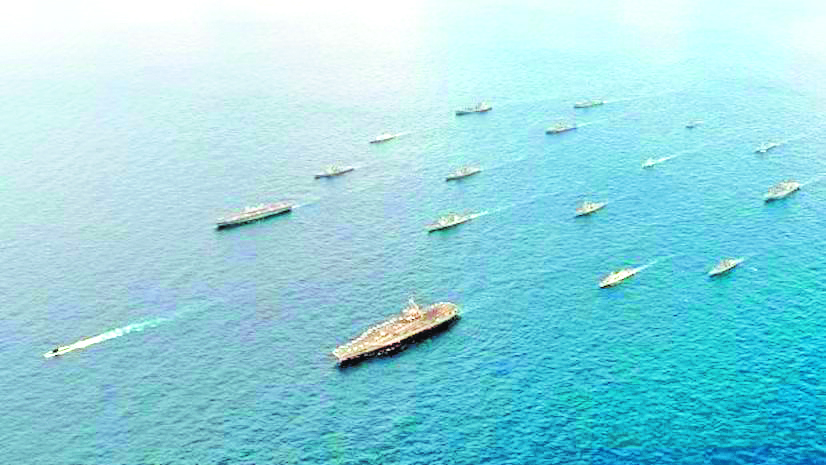Myanmar and China are jointly conducting naval exercises as the military government in Myanmar faces challenges in its northeast border region from a coalition of militias with strong ties to Beijing.
According to the state-run Myanma Alinn newspaper, three Chinese vessels, including the destroyer Zibo, frigate Jing Zhou, and supply ship Qian Dao Hu, are participating in maritime security exercises in Yangon, Myanmar’s largest city. Officials from both nations met on Tuesday to discuss the drills, with the Chinese vessels carrying approximately 700 sailors arriving at the Myanmar port on Monday. The visit coincides with an escalation of violence on Myanmar’s border with China by the Three Brotherhood Alliance, a group of militias that initiated a coordinated offensive against the ruling military on 27 October.
China serves as Myanmar’s primary trading partner and maintains positive relations with the ruling generals. The factions within the alliance also enjoy favorable ties with China and are committed to safeguarding foreign investments, particularly Chinese-backed projects in their controlled territories.
The alliance has declared significant victories, including securing four border crossings in the northern part of Shan state. The military government acknowledged the loss of three towns soon after the onset of fighting. The alliance’s offensive has revitalized the nationwide armed resistance against the military regime installed following the coup, leading to widespread conflict across the country.
While Beijing has called for a cease-fire and advocated resolving differences through dialogue, it has not utilized its influence with the militia groups to compel an end to the hostilities. Prior to the offensive, China expressed dissatisfaction with the military government’s neglect of significant criminal activities near the border, such as drug trafficking and cyber scam centers.
As the Three Brotherhood Alliance gained ground, thousands of Chinese nationals engaged in such operations were repatriated into police custody in China. Supporters of Myanmar’s ruling generals have organized demonstrations in major cities, accusing China of assisting the militia alliance.

















